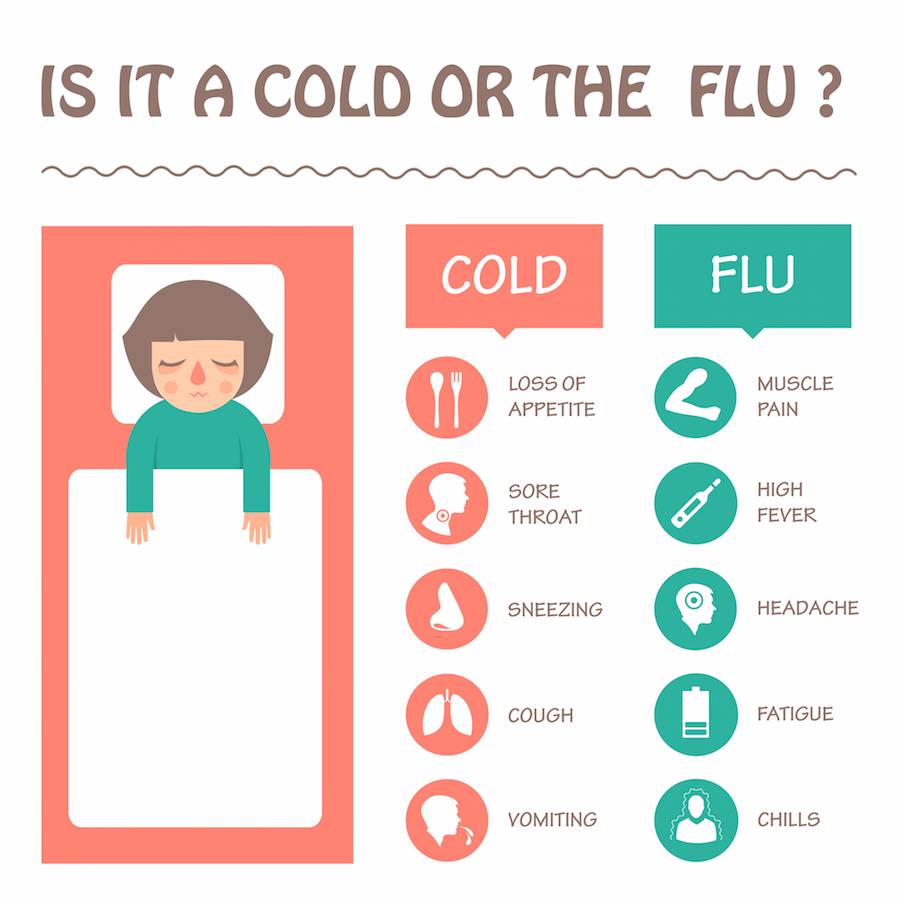The Common Cold or Flu, Which Do You Have?
You’re congested, your head is pounding, and your throat is aching—do you have a case of the common cold or could it be the flu? The symptoms for both illnesses are similar, so unless you visit your doctor and get tested for the flu, you may be left wondering.
There are, however, some basic guidelines that can help you to determine whether you have a common cold or flu. We’ll go over those as well as give some insight as to what to do when you have either of these infections.
There’s no known cure for the flu or the common cold, however, researchers are working hard to find new treatments that reduce symptoms and shorten the duration of both illnesses. Clinical trials are being conducted all around the country, including here in Miami, that are testing exciting new treatments. Exciting things are on the horizon!
The Common Cold or Flu—What’s The Difference?
If you’re feeling ill, it’s important that you know the difference between flu and cold symptoms so that you can identify what you have and move forward with the proper treatment protocol.
In general, a cold is a milder illness than the flu. A common cold will typically make you feel ill for several days, but the flu can drag on anywhere from days to weeks. Additionally, the flu can result in more serious health problems like pneumonia.
Initially, you may not know what type of illness you’re dealing with, however, if your cold symptoms progress and last for more than a week, it may be time to head to the doctor to be tested for the flu.
Symptoms of the Common Cold
Everyone is susceptible to “catching” a cold every once in a while. Unfortunately, the viruses that cause colds are everywhere, especially in the cold weather months. Most people can feel a cold coming on by these telltale symptoms:
- Congestion
- Runny nose
- Cough
- Sore throat
- Sneezing
- Headache
- Low-grade fever (most often in children)
In the beginning stages of a cold, the mucous secretions from the nose are usually watery in nature. As the cold runs its course, the secretions will naturally become thicker and darker in nature.
Symptoms of the Flu
Flu symptoms are very similar to those of a cold; however, they tend to be more severe and come on much quicker. Flu season runs from fall to spring, with peak months in the winter. In addition to the symptoms we listed above for the common cold, flu sufferers also often feel:
- Fever
- Muscle aches
- Soreness
- Vomiting and Diarrhea
 If you’re suffering from any of these symptoms for a week or more without any noticeable improvement, there’s a good chance that you’re dealing with the flu and not just a regular cold.
If you’re suffering from any of these symptoms for a week or more without any noticeable improvement, there’s a good chance that you’re dealing with the flu and not just a regular cold.
There is no cure for the flu, however, the flu shot can be administered to help prevent you from catching it as well as help reduce symptoms should you still get it.
Whether you have a common cold or the flu, you must allow your body to rest and recuperate as best as you can.
If what you’re experiencing is the common cold, you may be eligible to participate in a clinical research study right here in Miami that’s testing new cold treatments aimed at shortening the duration of your cold and easing the symptoms.
JOIN NOW —-> APPLY TODAY!


